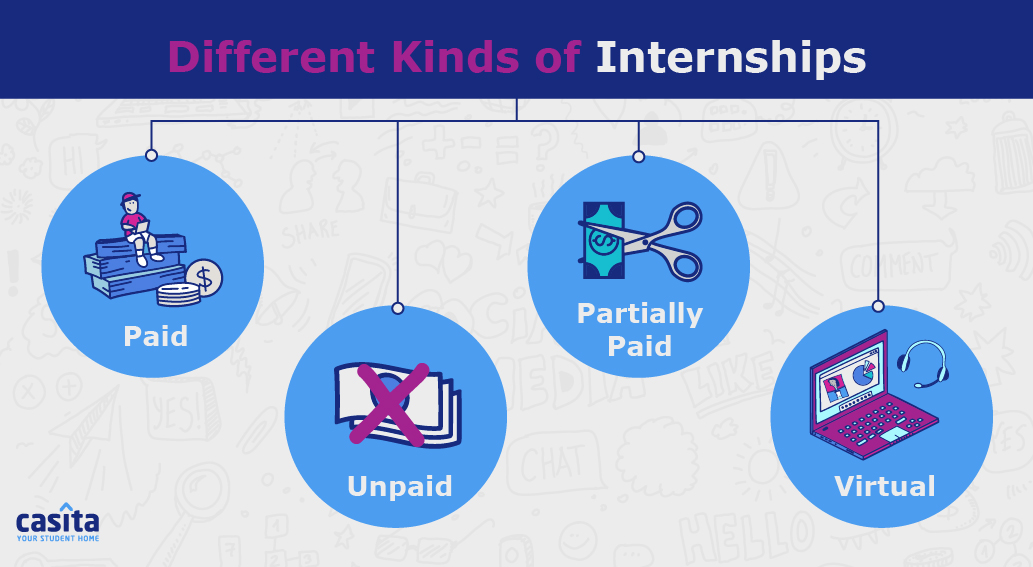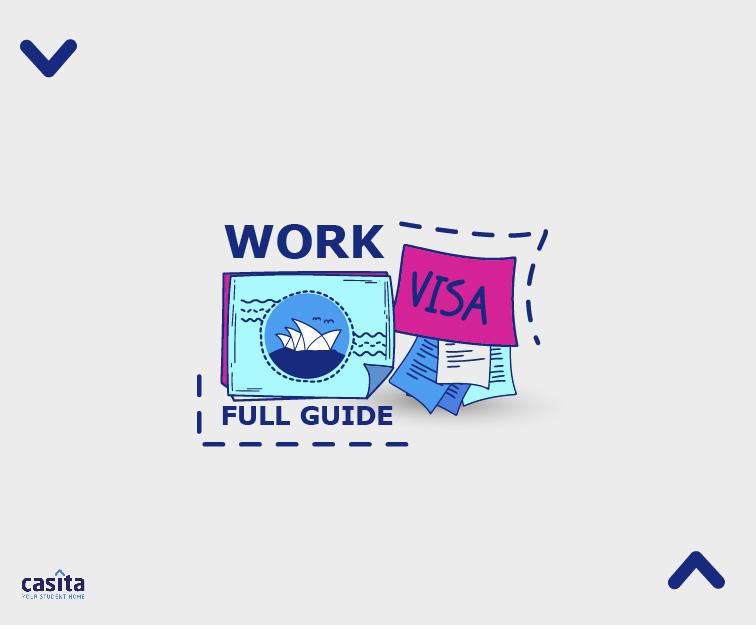A Guide on What an Internship Is and Why You Should Do One
Tips and Advice
Careers
6 mins read
Share

Updated at: 25 November, 2025
Published at: 30 January, 2019
By Samir Badawy
A Guide on What an Internship Is and Why You Should Do One
Tips and Advice
Careers
6 mins read

Updated at: 25 November, 2025
Published at: 30 January, 2019
By Samir Badawy
Share
Internships are essential to your adult learning experience as they provide you with real-life work experience and work-related skills and credentials. Internships are so important that they have become a prerequisite for graduating from a university or college, depending on your institution. These will ensure that you have applied what you have learned to a real-life experience, culminating in more knowledge.
Many of our students often wonder what an internship is, its benefits, the different kinds, and how to find the right one. This is why we’ll provide you with a “Guide on What an Internship is and Why You Should Do One,” which will help you answer all of these questions.

What is an Internship?
An internship is a work-related activity/program that provides real-life work experience in a specific profession or job; it is meant for entry-level or beginner-level candidates. One of its main features is combining classroom knowledge with real-life work settings. Internships can also help you network with professionals, increase your recommendations, and enhance your CV.
Benefits of an Internship
An internship holds several benefits on various levels, including exploring your interests further, applying what you’ve learned, testing out your interests, and self-development, which will be discussed below in this section.

1. Helps You Gain Experience
We cannot mention internships without highlighting one of their primary functions: helping you gain professional experience as a beginner or entry-level candidate. Interns get to test out what they have learned in a professional setting, which changes their perspective and expectations while enhancing their knowledge, especially how to use this new knowledge that combines practical and theoretical knowledge.
2. Helps Introduce You to the Work Environment
Starting an internship gets you accustomed to the professional way of life, introduces you to metrics and standards, and shows you how businesses operate. This training helps you adapt quicker to the workplace than if you were to apply right after university. You would also learn how reporting works and the different positions in a company. It also helps you develop soft skills such as critical thinking and leadership skills. It also enables you to understand more about your chosen industry.
3. Networking
One of the benefits of having an internship is networking with professionals within the company and creating a professional network that continues to grow with every training or professional interaction. While an intern, you will not only be dealing with professionals within your company, but you may also interact with others in the field and company partners. Make sure you add your new network to your LinkedIn and exchange cards.
4. Adding Credentials to Your CV
Having experience as an intern before working adds to your chances of employability; it also adds to your skill set and knowledge, which is ideal for employers looking for more qualified candidates. The more experience you acquire as an intern, the higher your chances are of getting picked, as opposed to candidates with no previous experience. Just make sure you keep your CV and LinkedIn updated with your newest skills and experiences.
5. Discovering the Right Career for You
Many employers hire interns as generalists, meaning they’ll get a broader range of tasks than full-time employees. Having a wide range of functions helps you find what strengths you have and what could be your potential career path. You can also use an internship to test various career paths, as they have a short duration and require no commitment post-completion. It can be a great way to test out multiple sectors and get a well-rounded view of what you’d like to do.
6. Getting Professional Advice and Learning from Others
Once you are tested in your new professional environment and once you have gotten out of your comfort zone, you will be able to receive a new form of knowledge that also comes with professional feedback, advice, and the ability to observe and learn from others, which can also be part of work shadowing, where you watch your teammates at work to learn.
7. Opportunity to Get a Full-Time Offer
Once you have proven your worth to your employers and displayed great understanding and progress, you can also be offered a full-time or part-time position, depending on your availability. This is beneficial for both the employer and yourself, as you will already start with knowledge as you have already trained with the company and wouldn’t have to adjust. Regarding employers, they will hire a candidate with experience and expertise and someone who they have already tested; this also saves your employer the training effort.
Different Kinds of Internships
When looking for an internship, you should also consider the options available, including paid, unpaid, partially paid, and virtual internships, depending on your needs.

1. Paid
Paid internships are the most common and usually occur in the second, third, or fourth year of study. These internships pay you for the work done and are often used in the following fields: business, architecture, medicine, science, engineering, law, technology, and advertising.
2. Unpaid
Unpaid internships are also great, often including volunteer work at charities or organisations. Many unpaid internships have to go through various criteria to be considered as such, as many countries have minimum wage laws.
3. Partially Paid
Partially paid internships do not pay out in the form of salaries or wages but rather give out stipends, which are payments that are not meant to compensate for work but rather act as allowances for basic expenses such as living expenses and transportation.
4. Virtual
A virtual internship is one where you get all the benefits of regular training without the physical presence or the need to travel. Virtual internships can be done over the phone, mail, or the Internet and are a fantastic way to start your training, especially since they can be self-paced.
How to Find the Right Internship
In this portion, we’ll break down the best ways to find internships and how to make sure that this internship is convenient for you. We will start by laying out the tips and, later, the best platforms to find internships.
Before applying for internships, you must consider some things related to yourself, the training, and the employer. Below are some of the best tips to ensure this internship is right for you.
1. Check if it Matches Your Intended Sector
This is the first question to ask yourself before applying for an internship; having a clear focus will give you a head start in the sector of your choice rather than starting with an industry you do not intend to pursue.
2. Determine Your Eligibility for the Internship
Each company lists their expected candidate skills, knowledge, and other requirements, such as the level of education required, years of learning, or prior experience. Before applying for an internship, make sure that you qualify so as not to waste time.
3. Evaluate the Company
Another important tip is to look up the company and check the reviews and ratings, maybe even its establishment date and its position in the market. Always remember that an internship can lead to a permanent job down the line, so it would help if you picked a well-established company for your training.
Another way to evaluate whether the company is a good fit for you is to look up or ask about its workplace environment. A workplace environment is defined by the workplace spirit, unwritten rules, and belief system. It would help tremendously if your character and ideals matched the company’s.

4. Weigh Out the Benefits of This Internship
When applying for an Internship, you should always consider the benefits you get, which include two main things: the skills you are expected to acquire and the payout. Internships are one of the primary ways you can enhance your professional skills as a non-experienced or entry-level candidate, so when applying for internships, make sure you can get the most out of them.
Secondly, it would also help if you were compensated for your work, whether it be through a fixed salary, a wage, or other benefits. It also helps to know what to expect regarding future company salaries if you have plans to continue with the same company.
5. Attend Career Fairs
Attending career fairs is one of the best ways to network with those from the company while having the opportunity to present yourself, your contact details, your application papers, and the chance to ask questions. Attending career fairs also gives you lots of internship opportunities, as various companies are present during the event.
6. Network
Asking a friend, family member, or professional in your network for help and guidance is never a bad idea. You can also ask them for advice on what internship suits you best. You could also ask them if they know about any internship vacancies or opportunities available.
7. Use Online Platforms
Nowadays, thanks to online platforms, the hunt for an internship has never been easier. Make sure to first build your CV and online profiles before connecting with hundreds of employers online.
Some of the most common platforms include Linkedin, where you can apply for internships/jobs and connect with professionals; Indeed, where you can also connect with employers after posting your CV and choosing your employment types; and Chegg Internships, which has the added feature of showing you which Facebook friend worked with the employer previously.
Other websites worth mentioning include Glassdoor and Idealist, which act the same as the previously mentioned platforms.
At Casita, we highly encourage internships as they provide real-life experience, give you an understanding of what to expect post-graduation in a work environment, enhance your CV, and add valuable skills that can be used in your future career, among other benefits. Internships can also be a great way to not only get the necessary experience and skills for future career development but also generate passive income. If you’re in the UK, you can check out our UK internship guide for more information on the best opportunities in the UK.
Tips and Advice
Careers
By Samir Badawy
Share
Tips and Advice
Careers
Updated at:
Published at:
By Samir Badawy
Share





